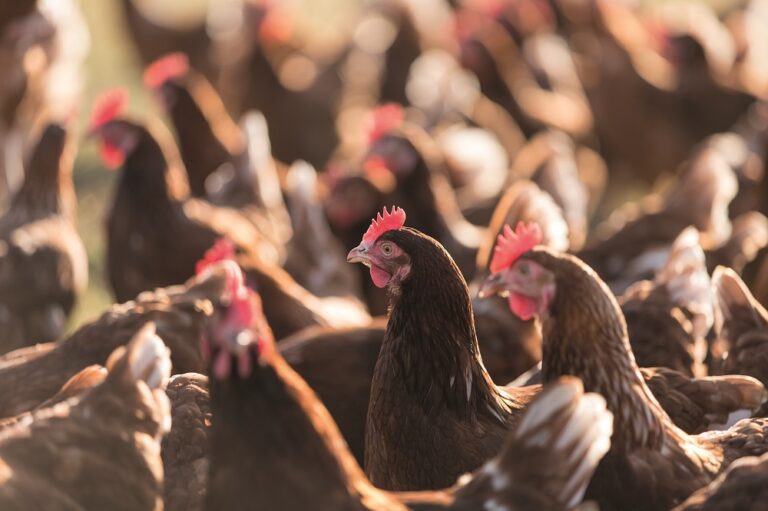The Government has published a policy paper on the new Animal Health & Welfare Pathway, which outlines plans to “implement the Better Chicken Commitment” and for laying hens to “transition out of cages”.
Defra’s document, published on 22 February, heralds big changes for the poultry sector, which could require broiler and egg producers to make big changes to how they currently produce food.
The document states the Government wanted to intervene in the market to “make it easier for consumers to purchase food that aligns with their values, by improving transparency and providing the industry with a level playing field to promote such products.”
The majority of consumers value high animal welfare, but this is not fully reflected in what they purchase, the Government said. “We are looking at potential market interventions such as, labelling and mandatory public disclosure that could improve the accessibility, availability and affordability of higher welfare products for consumers, while driving positive procurement choices by retailers.”
The document states producers will be expected to “adopt welfare-improving technology to support environmental and behavioural monitoring and better stockmanship” and in egg production producers will need to “improve feather cover management” paving the way to reduce “the need for infra-red beak trimming”.
Keel bone health will be another area of focus to “reduce laying hens’ susceptibly to painful fractures which can occur in all production systems,” the document states.
Funding should become available in late 2022 to help support producers, Defra said. Farmers can apply for grants to co-fund capital investments to support the delivery of the published health and welfare priorities. This will include: smaller grants, where farmers can select from a list of equipment and technology items, and larger grants, for bespoke infrastructure projects such as new housing, building upgrades and pasture improvements
“The competitive grants will initially be open to livestock farmers with cattle, pigs, sheep, meat chickens and laying hens. In future years of the programme, we hope to expand to other livestock farmers such as those with goats, ducks, or turkeys,” the document states.
Producers will need to agree with their vet the most appropriate investments for their farm and animals. They can seek advice as part of the review, a routine vet visit or a phone call with their local vet.
Defra is also planning to introduce a ‘payment-by-results’ scheme, which poultry producers will be eligible for for the first time. This scheme will be trialled in 2023.


